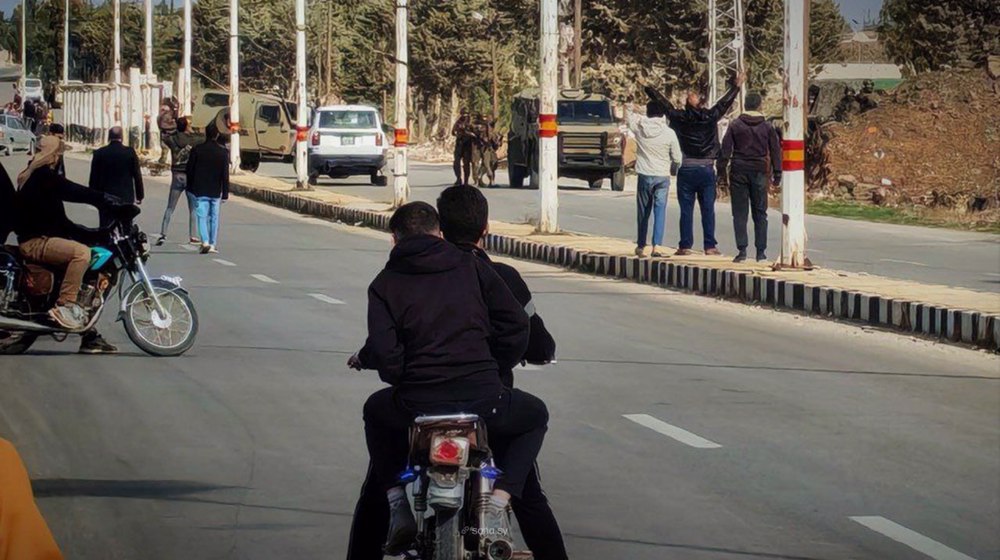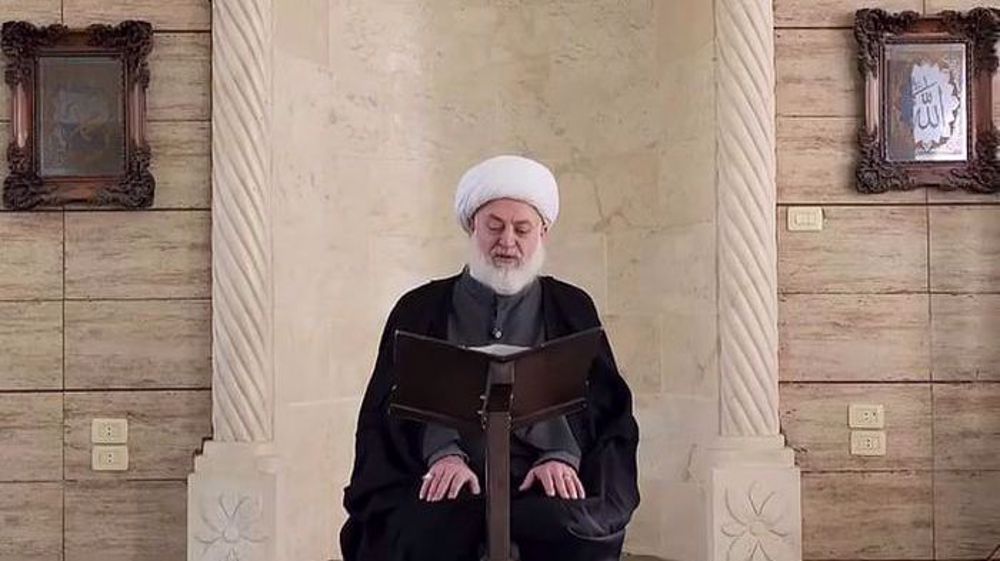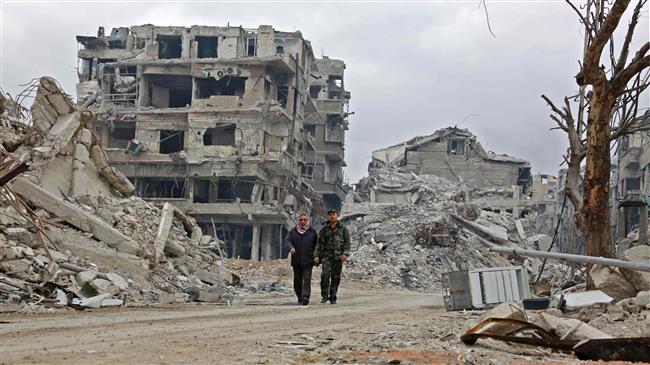Oil smuggling out of Syria stopped but arms keep flowing in for terrorists: Russia
The Russian Foreign Ministry says the Illegal oil trade routes exploited by terrorists in Syria have been almost entirely cut off, but the Daesh Takfiri terrorist group and the Takfiri Jabhat Fateh al-Sham terror group, formerly known as al-Nusra Front, are still receiving sufficient funding and arms supplies from abroad.
“Hydrocarbons smuggling, as one of the main sources of funding for terrorist groups in Syria and Iraq, has been reduced to a minimum,” said Ilya Rogachev, the director of Department of New Challenges and Threats Issues of the Russian Ministry of Foreign Affairs, on Saturday.
However, he added that Daesh and Nusra Front “have never run out of bullets” during the seven-year deadly foreign-backed militancy unleashed in the Arab country, despite being confronted by Syrian government troops, the Russian Aerospace Forces and pro-government forces.
"Our Aerospace Forces almost daily report elimination of arms and ammunition depots. Yet, terrorists are never running short of weapons,” Rogachev said, adding that terrorists “have accumulated incredible amount of so-called goods for military use.”
The Russian top official also said the terror groups "obtain almost 100 percent of weaponry from some source."
"Who manufactures, purchases and supplies it?" Rogachev asked.
He also said that Moscow had already gathered some data and had discussions on the issue with a number of countries. However, the problem of arms supplies, within the context of international counter-terrorism cooperation, has not been seriously addressed so far, Rogachev concluded.
Syria has repeatedly blamed some Western countries and a number of regional states, including Saudi Arabia, of supporting anti-Damascus militants and of destabilizing the Arab country.
Moscow has backed Syria’s fight against terror since September 2015, when Russian air force and troops arrived in the Arab country at an official request of Damascus to help the government fight against Daesh and other Takfiri terrorists. Russia’s assistance has proved to be a major success as Syria has managed to liberate large areas over the past years.
The news of the latest victory over foreign-backed terrorists in Syria was announced earlier in the day, when the Syrian military said that Eastern Ghouta, held by militants for the past several years, was completely liberated from the grips of multiple terror outfits after a month of intense fighting. The flashpoint enclave, adjacent to the Syrian capital of Damascus, with a population of around 40,000, fell to militants in 2012, months after Syria plunged into crisis, and has since served as a launch pad for fatal mortar attacks against residents and infrastructure in the capital.
The full liberation of Eastern Ghouta is considered the second biggest victory for the Syrian government after the liberation of Aleppo in December 2016.
VIDEO | Golestan: Iran's dreamlike garden
VIDEO | Fate of Gaza ceasefire
VIDEO | South Korea follows US demand, boosts military expenditure
VIDEO | Iran hosts 7th BRICS Meeting on Mega-Science Cooperation
Iran after a 'strong region free from foreign interference': FM
Tehran Stock Exchange index hits historic high
3 civilians injured by Israeli fire during incursion into Syria’s Quneitra
Iran’s wheat imports at $424 mln in Apr-Oct: IRICA














 This makes it easy to access the Press TV website
This makes it easy to access the Press TV website